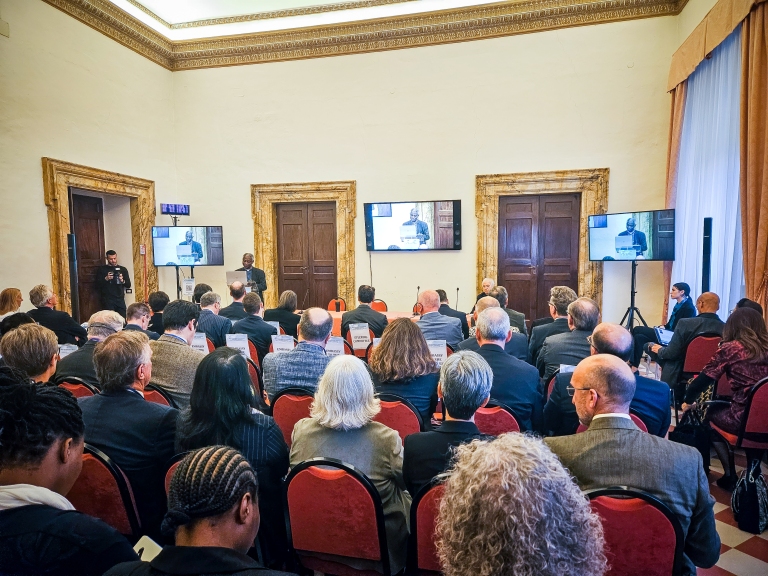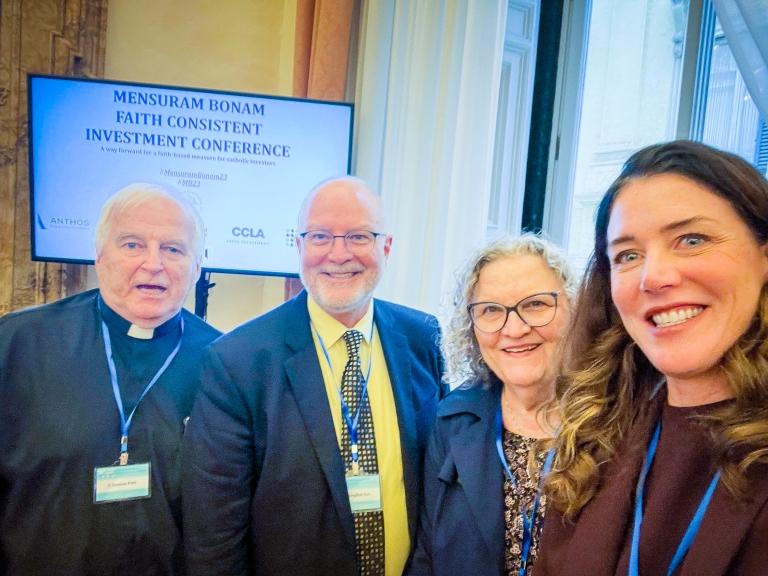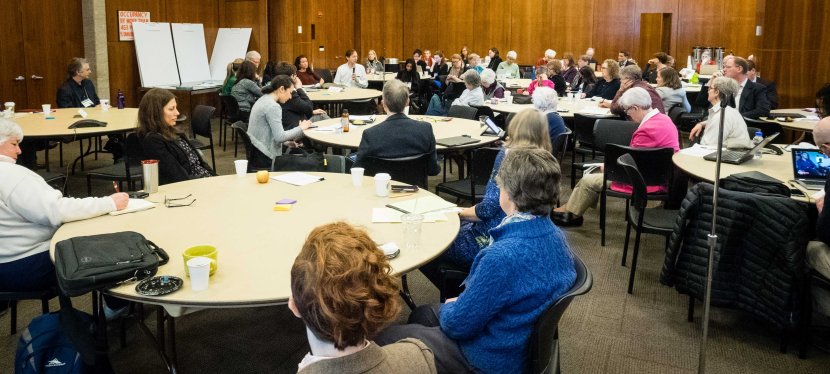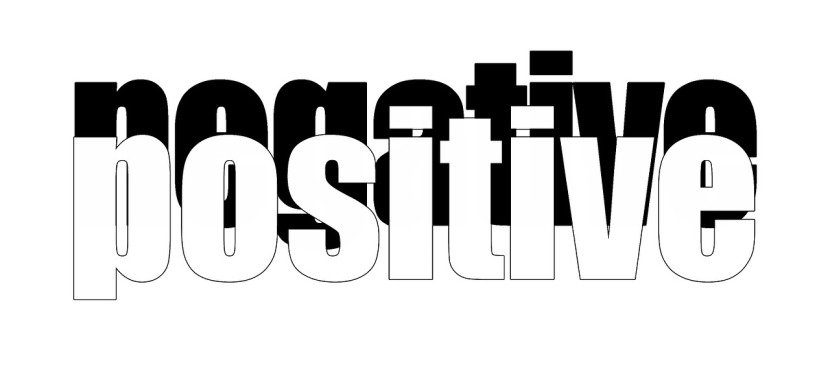Recently, I had the honor to represent SGI at the Mensuram Bonam Conference hosted by the Pontifical Academy of Social Sciences in Rome. The conference drew about 120 people from around the globe to reflect upon the document and the state of faith-consistent investing. Participants included clergy and religious and lay persons who serve within religious congregations, archdioceses and dioceses, asset advisors and managers, banks, foundations, and faith-based investor coalitions.

The conference gathered us a few days after the Vatican’s Synod on Synodality concluded, and so we dialogued, in the synod’s spirit, with deep listening to others alongside a commitment to co-responsibility. The conference aimed to to prompt collaborative learning and reflection on Catholic Social Thought, using Mensuram Bonam as a source and guide in faith-consistent investing. We shared lessons, ongoing questions, best-practices, and dreams. Practically, the conference identified certain future collaborations to advance the faith-consistent investing movement.
As the document nears its first anniversary, Mensuram Bonam increasingly bears greater weight in Catholic investing. For instance, Catholic bishops make an Ad Limina visit to the Holy See every five years. During the visit, they provide written reports and meet with Pope Francis and with the various dicasteries and offices of the Roman Curia. (U.S. Catholic bishops will make their next visit in 2025.) In the visitation to the Pontifical Academy of Social Sciences, Mensuram Bonam is on the agenda.
Further, the climate crisis makes Mensuram Bonam increasingly important. Months after Pope Francis published his 2015 environmental encyclical Laudato Si’, the United Nations Sustainable Development Goals (SDGs) and the Paris Agreement were adopted. Now, eight years later and with the world halfway toward the SDGs’ 2030 deadline and the Paris Agreement’s goal to halve global emissions, Pope Francis renewed the call for urgent climate action in the apostolic exhortation Laudate Deum. Pope Francis underscored that our responses to the climate crisis have been inadequate.
Numerous local churches, especially in the global North, adopted guidelines prior to Mensuram Bonam, and Mensuram Bonam represents the affirmation and on-going development of that work. The U.S. Catholic Conference of Bishops adopted their first socially responsible investment guidelines in 1991, revised them in 2003, and revised them yet again in 2021. German Bishops issued guidelines in 2015 and revised them in 2021 (English translation), Austrian Bishops have had guidelines since 2018 (English translation), and the Italian Bishops Conference issued their guidelines in 2020, among others. During the conference, I came to appreciate how advanced European asset managers are in the practice of ESG. Mensuram Bonam also aims to urge those local churches without them to develop their own guidelines.

ICCR members had a significant role in the conference. Fr. Séamus Finn, O.M.I. was one of the organizers. Mercy Investment Services, Christian Brothers Investment Services (CBIS), and Socially Responsible Investment Coalition (SRIC) also participated. We had ample opportunities to share our experiences, and I felt privileged to share stories from SGI’s fifty years in faith-consistent investing. While the U.S. and Europe were early adopters, led by ICCR and pioneers like Fr. Mike Crosby, O.F.M., Cap., the global South had important interventions in the conference. There were many hopeful signs at the conference. For instance, Italy’s Alessandra Viscovi recently launched an Italian organization modeled on ICCR.
The conference advanced reflection and practice concerning the relationship between faith and finance. Starting from the shared conviction that no investment is morally neutral, participants explored the vocation of investor, inspired to invest in the production of good goods, with a commitment to good work, so that the enterprise of business might yield good wealth.




